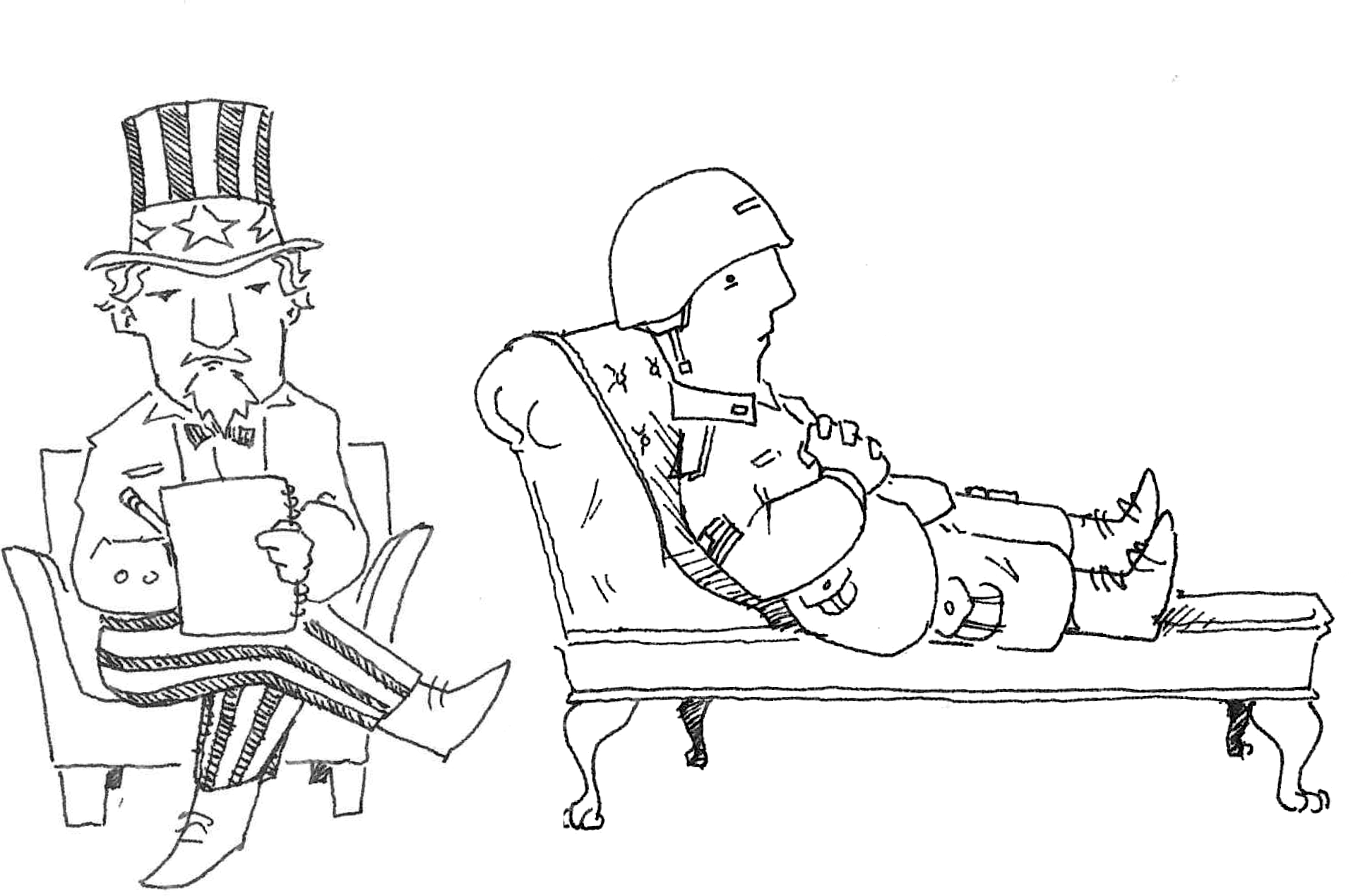
A new study by researchers in Yale’s Department of Psychiatry has found that there is a correlation between the likelihood that veterans with post-traumatic stress disorder will seek treatment and the timing of their compensation claims — in which veterans receive compensation for any disabilities due to service.
Published in PLOS One and featured on the journal’s Veterans Disability & Rehabilitation Research Channel, the study examined electronic health records of 307 post-9/11-era veterans seeking compensation for service-related PTSD.
“What’s most exciting about this study is the fact that our team was the first to measure veterans’ beliefs about how important it was to attend mental health treatment around the time of having a compensation claim for a mental health condition,” said Anne Black, a research associate at the Yale School of Medicine and lead author of the study.
According to Black, previous research in the field has found different results about whether or not veterans are more likely to attend treatment if they have a compensation claim in place.
The study found that veterans seeking compensation for service-related PTSD are more likely to attend mental health treatment sessions before their compensation exams than after, but only if they had a strong belief that attending mental health treatment would facilitate a service-connection award.
On the other hand, there was no such relationship in subjects who had did not believe that receiving mental health treatment would support their compensation claims.
“It’s a complicated relationship,” Black said. “The reason why these findings are so important is because they provide insight into what it might mean to engage veterans in treatment.”
The study used a new instrument — the Disability Beliefs Scale — to measure veterans’ beliefs about the value of seeking mental health treatment for PTSD. Black noted that clinicians may use this new scale in the future to better understand veterans’ motivations about seeking both compensation and treatment.
“Veterans’ motivations for applying for compensation are wide-ranging and varied. They are not always financial,” Black said. “Our study suggests that one can take advantage of the time that veterans are applying for compensation by directing them to treatments that address the same motivations.”
Black noted the existence of a large number of highly effective PTSD treatments available for veterans. However, veterans often do not take advantage of these treatments — and some do not know how receiving mental health treatment will impact their compensation claims.
“The most significant policy implication that the study suggests is that veterans should receive clarification about the extent to which treatment engagement impacts their compensation claims,” said Marc Rosen, professor of psychiatry at the School of Medicine and co-author of the study.
The study was funded by the Department of Veterans Affairs Health Services Research and Development Service.
Ishana Aggarwal | ishana.aggarwal@yale.edu







